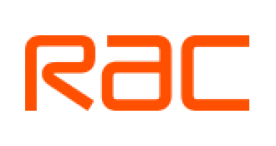Make all the right money moves
Need helpful tools and tailored insights to answer your money questions? Turn to the Nerds.
Compare Business Bank Accounts
Find the business bank account that works best for you, whether you’re a limited company, startup or sole trader
Opening a dedicated business account as a sole trader can help keep your personal and business finances separate and make running your business easier. Finding the best sole trader bank…
A joint business bank account can be a great way for multiple business partners to get involved with the management of your company’s finances. But which joint account is right…
Online business bank accounts tend to be quick and simple to open and manage, making it easier to keep on top of your business’s finances. It’s just a matter of…
Opening a business account as a startup can provide a great platform for future business success. Crucially, you need to find the right startup business bank account for you.
Find a Small Business Loan
Find trusted lenders who are ready to help your business grow, with loans from £1,000 – £5,000,0000
Finding the right sole trader business loan can help you manage cash flow, fund new equipment or support growth. Compare loans tailored to sole traders and check your eligibility without…
If your business needs funding fast, a short-term business loan could be the answer. These loans are usually easy to apply for and some lenders release funds the same day,…
An unsecured business loan could provide the funds your venture needs without putting your business assets at risk. The important part is to find the right unsecured loan for you.
Looking to grow your limited company or steady its cash flow? Business loans can provide quick access to the capital you need. Discover the types of limited company loans available,…
Compare Business Credit Cards
Compare our top-rated business credit cards to help you boost cash flow, save money, and even reward your spending
Business reward credit cards can top up your spending with extra perks, such as loyalty points, vouchers or cashback. Find out how they work, whether they may be right for…
Business credit cards for bad credit history may be an option if your new business hasn’t yet built up a credit score or if you’ve missed payments or had issues…
A business credit card for travel can help you avoid paying extra fees and charges when you’re overseas. You could also be eligible for extra perks like airport lounge access…
A business credit card can help you manage cashflow and grow your business, and they are often more accessible to startups and new businesses than other types of finance. Compare…
You got this
Everything you need — totally free
Expert info
Our objective and award-winning editorial team of 80+ Nerds make even the most complicated money questions and topics simple to understand.
Side-by-side comparisons, smart calculators and straightforward guides help you make sense of your options.
Great deals
Stay ahead of the game by comparing over 5000 deals on financial products and services.















